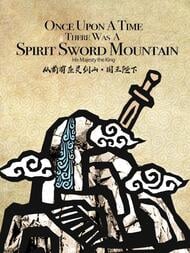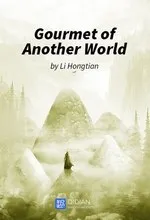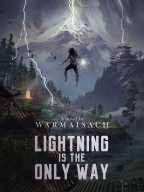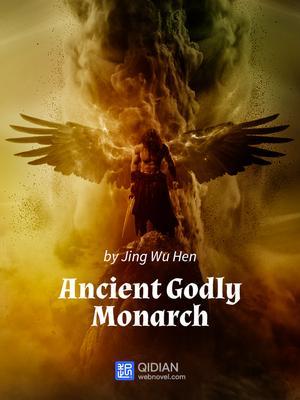The Story in 3 Sentences
Wang Lu, a modern-day genius transported to a cultivation world, uses his intellect and genre savvy to navigate the Spirit Blade Sect’s rigorous selection process, turning challenges into opportunities with unorthodox methods and sharp wit.
Under his shameless yet powerful master Wang Wu, he cultivates the unique Wuxiang Jian’gu technique, balancing defensive prowess with strategic brilliance while forming alliances and rivalries in a world where traditional xianxia tropes are both exploited and subverted.
His journey evolves from sect disciple to a key player in cosmic conflicts, blending laugh-out-loud comedy with profound themes of destiny, loyalty, and the absurdity of power.
Why It Stands Out
1. Meta-Humor and Trope Subversion
The novel excels as a parody of xianxia conventions, with Wang Lu’s modern perspective allowing him to deconstruct genre clichés—from arrogant young masters to contrived power-ups—creating a refreshingly self-aware narrative that balances satire with genuine storytelling. His quips about cultivation tropes and fourth-wall-breaking observations provide continuous comedy without undermining the plot’s emotional stakes, making it a standout for readers tired of traditional xianxia predictability.
2. Character-Driven Comedy and Depth
Unlike many cultivation stories reliant on action, Spirit Blade Mountain prioritizes character interactions, particularly the dynamic between Wang Lu and Wang Wu, whose master-disciple relationship is both hilarious and heartwarming, blending sarcasm, mutual respect, and unexpected vulnerability. Supporting characters like the loyal Hai Yunfan and scheming sect elders contribute to a rich tapestry of relationships that drive the narrative without relying solely on combat or power progression.
3. Balanced Pacing and World-Building
The story avoids rushed cultivation breakthroughs, focusing instead on sect politics, cultural satire, and gradual character growth across its 850+ chapters, ensuring each arc feels meaningful and immersive. The integration of Eastern mysticism with comedic elements—such as food-eating battles and absurd trials—creates a world that feels expansive and uniquely entertaining.
Characters That Leave a Mark
There’s Wang Wu – the unconventional, shamelessly humorous master whose outrageous behavior masks immense power and deep care for her disciples, embodying the novel’s theme that true strength lies in unpredictability and wit.
You’ll meet Hai Yunfan, Wang Lu’s steadfast friend and moral compass, whose loyalty and integrity provide a grounding contrast to the protagonist’s cunning, highlighting the importance of camaraderie in a chaotic world.
And Fengyin, the sect leader whose wisdom and occasional exasperation with his subordinates add layers to the sect’s political dynamics, representing the balance between tradition and disruptive comedy.
The Flaws Fans Debate
Some readers criticize the early translation quality and occasional vulgarity, noting that forced humor can detract from emotional moments, particularly in scenes where crude jokes overshadow character development.
Pacing issues arise in middle chapters, where repetitive jokes or prolonged arcs risk monotony, though fans argue these sections reinforce the thematic focus on gradual growth.
The reliance on meta-humor may alienate readers unfamiliar with xianxia tropes, as much comedy derives from subverting genre expectations.
Must-Experience Arcs
Ch. 1-50: Sect Entrance Trials – Introduces Wang Lu’s genius and the series’ comedic tone as he outsmarts challenges with modern logic, establishing the Spirit Blade Sect’s quirky culture and key relationships.
Ch. 200-300: Western Regions Adventure – A fan-favorite arc where Wang Lu’s strategic brilliance shines, blending action with satire as he navigates foreign cultures and political schemes.
Ch. 600-700: Cosmic Conflict Resolution – The climax ties together character arcs and metaphysical mysteries, delivering payoff for long-standing jokes and emotional threads while reinforcing themes of intelligence over brute force.
Killer Quotes
“True strength isn’t about how many people you can defeat, but about how many you can protect.”
“Some bonds are forged not by blood, but by shared suffering and mutual respect.”
“The path of cultivation is walked step by step, the mountain of dao is climbed inch by inch.”
Cultural Impact
Spirit Blade Mountain pioneered the comedy-xianxia subgenre, inspiring adaptations like the Studio Deen anime and live-action series, and influencing later works to blend humor with cultivation.
Its meta-commentary on xianxia tropes sparked discussions in online communities about genre evolution, with fans praising its ability to critique clichés while embracing them authentically.
The novel maintains a dedicated global fanbase despite translation challenges, with active forums analyzing its characters and humor.
Final Verdict
Start Here If You Want:
A hilarious yet thoughtful parody of xianxia that doesn’t sacrifice character depth for comedy, offering clever subversions of tropes and a protagonist who wins with wit rather than fists.
A story where relationships and humor take center stage, set in a richly built world that balances absurdity with genuine emotional moments and strategic plot development.
A refreshing break from traditional cultivation novels, with consistent themes of intelligence over strength and a narrative that rewards patience with payoffs both funny and profound.
Study If You Love:
Deconstructing genre conventions through meta-humor and exploring how comedy can enhance character development and world-building.
Analyzing cross-cultural adaptations, as the novel’s journey from web novel to anime highlights differences in Eastern and Western storytelling preferences.
Examining how satire can critique repetitive tropes while still delivering a compelling, immersive narrative that respects its source material.
Avoid If You Prefer:
Fast-paced action or traditional power progression, as the novel prioritizes comedy, dialogue, and gradual growth over rapid combat or cultivation breakthroughs.
Serious, grimdark narratives without humor, as the story’s lighthearted tone and frequent jokes may clash with preferences for unwavering seriousness.
Minimal meta-commentary, as the novel’s reliance on genre awareness and fourth-wall-breaking humor is central to its identity and appeal.





